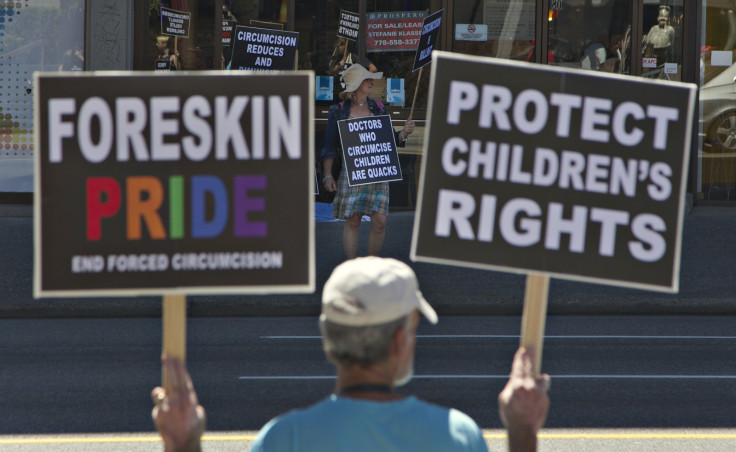Will the UK ban circumcision? Doctors urged to condemn Muslim and Jewish ritual as Iceland plans ban

KEY POINTS
- Jewish and Muslim leaders have condemned Iceland's bill, describing it as a "dangerous attack" on religious freedom.
- UK campaigners are calling for a ban on circumcision that is requested for non-medical reasons.
Anti-circumcision activists are calling on UK doctors to condemn the religious ritual after Iceland proposes to ban the practice.
Iceland is poised to become the first European country to ban non-therapeutic male circumcision, with a new bill that aims to make it a criminal offence to remove any part of a child's sexual organs for non-medical reasons.
The bill likens ritual male circumcision to female genital mutilation (FGM), which is already outlawed in most European countries.
If the law is passed by the Icelandic parliament, parents who have their sons circumcised could face up to six years in prison.
Muslims and Jewish leaders have condemned the bill, describing it as a "dangerous attack" on religious freedom. Jewish newborn are routinely circumcised before they are eight days old. In Islamic practice, the procedure must take place before the boy reaches puberty.
Following the Icelandic proposal, British medical bodies are facing mounting pressure to support a ban on non-therapeutic, ritual circumcision.
Around 4% of boys born in the UK are circumcised by the age of 15, according to the most recent study in 2000, The Times reported.
The British Medical Association (BMA) is undertaking a periodic review of its guidelines which currently do not outline a clear policy for doctors dealing with religious circumcision requests. The procedure is considered lawful if both parents consent.
The Royal College of GPs told The Times that current guidelines put doctors in a "difficult situation" as there is "very little guidance for GPs and other medical professionals on how to manage requests for circumcision."
The General Medical Council (GMC) states that doctors are "not obliged" to perform the procedure, but says that "cultural, religious or other beliefs" must be taken into account.
Anti-circumcision campaigners hope that an age of consent for the procedure will be introduced in the UK, in line with the NHS consent age, which is 16.
Richard Duncker, who founded the campaign group Men Do Complain, described ritual circumcision as "without doubt an infringement" a young boy's rights.
He told IBTimes UK that under the current law (the Offences Against the Person Act) "the offence of wounding requires a cut through the full thickness of the skin, without the victim's consent and in the absence of medical need."
If there is no medical reason for non-therapeutic male circumcision, authorities can use the Act "to prosecute those who expose children to the significant harm caused by circumcision," Duncker said.
"It is unclear why such prosecutions have not taken place or been threatened. If this had occurred such action would have been likely to have acted as a deterrent. It is after all not punishment which is required but the cessation of assaults upon children in the absence of their capacity to consent," he added.
Men Do Complain is staging a protest in Brighton in June, to coincide with the BMA's annual meeting. "I think an enormous amount of doctors are sympathetic to our cause but are shouted down with a religious freedom argument," Duncker previously told The Times.
Pinchas Goldschmidt, President of the Conference of European Rabbis, said a political campaign to ban ritual circumcision sent a negative message.
"While open antisemitism has become politically incorrect in our time, we witness covert initiatives to rid countries of its Jewish population," he told IBTimes UK. "It is clear as day that once circumcision will be outlawed in Iceland, it will become impossible for young parents to stay in this country. We call on Iceland's lawmakers to fully comprehend the implication of this law."
Moshe Kantor, President of the European Jewish Congress, told IBTimes UK: "We can only assume that this attempt to ban a core practice of Jewish communities comes from ignorance about the practice and its effect on Jewish children, rather than to send a message that Jews are no longer welcome in Iceland.
"We call upon one of the world's oldest legislatures to respect the values of openness and tolerance for an age-old practice and for which there is absolutely no evidence that it is at all harmful," he said.






















